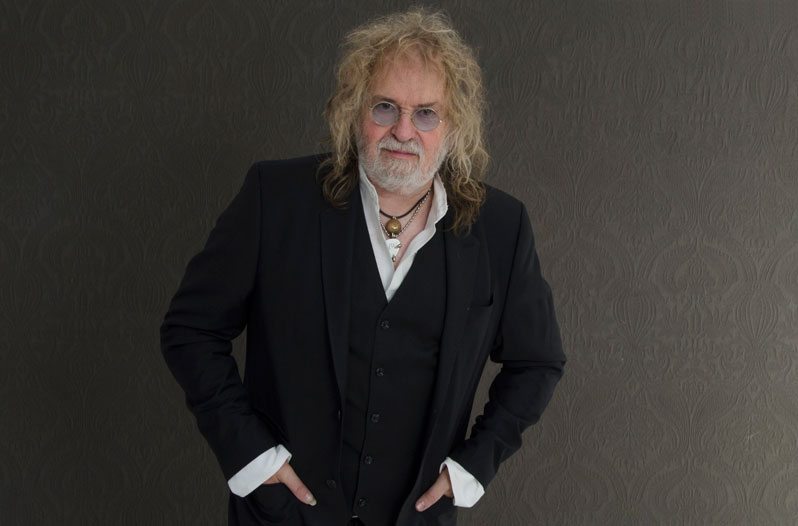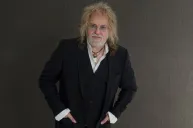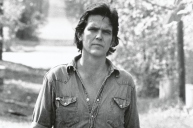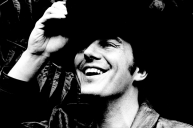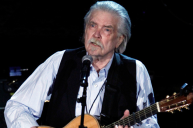Revered singer-songwriter and Texas icon Ray Wylie Hubbard is the subject of the forthcoming book The Messenger: The Songwriting Legacy of Ray Wylie Hubbard. The book, which features forwards by Jerry Jeff Walker and Hayes Carll, was written by Texas music historian Brian T. Atkinson and will be released on August 16 via Texas A&M University Press.
The Messenger traces Hubbard's music career from the 1970s Cosmic Country movement to his modern-day influence on contemporaries such as Eric Church and Hayes Carll.
"Ray Wylie Hubbard has been overlooked in the conversation about great Texas songwriters for far too long," Atkinson says. "He shouldn't be passed by. As several dozen songwriters within these pages proclaim, Hubbard has created a catalog over the past four decades deserving mention among monumental tunesmiths such as Guy Clark, Steve Earle, Lightnin' Hopkins, Kris Kristofferson, Mickey Newbury, Billy Joe Shaver and Townes Van Zandt."
In addition to the book, Atkinson and Eight 30 Records co-owner Jenni Finlay have produced the album The Messenger: A Tribute to Ray Wylie Hubbard, which will be released this fall. The compilation album features performances by Rodney Crowell ("In Times of Cold"), James McMurtry ("The Messenger"), Bobby Bare ("Snake Farm"), The Band of Heathens ("Drunken Poet's Dream") and more.
Today, Wide Open Country is premiering an excerpt from The Messenger: The Songwriting Legacy of Ray Wylie Hubbard. The following chapter features Outlaw Country legend Steve Earle discussing his friendship with Hubbard and Hubbard's legacy.
Excerpt from The Messenger: The Songwriting Legacy of Ray Wylie Hubbard
Steve Earle on the legacy of Ray Wylie Hubbard:
I knew about Ray Wylie Hubbard before Jerry Jeff Walker recorded "Redneck Mother" from when I
was fourteen hanging out at this coffee house in San Antonio called The Gatehouse. Ray never came
down there to play, but I started running into older people who played Sand Mountain and the Old
Quarter in Houston and the Rubaiyat in Dallas. I aspired to play those places and was at the first
Kerrville Folk Festival when it started in 1972. I probably saw Ray at Kerrville. There were some
Three Faces West reunions around then, so I forget if I saw him with a band or on his own. I would
always go and get in Kerrville however I could.
I liked "Up Against the Wall Redneck Mother," but by the time I started seeing him play on a
regular basis he was with the Cowboy Twinkies. They were a country-rock band, and Ray fingerpicked
better than anybody else. I knew I was dealing with a folksinger from the way he played because that's
how I started. Jerry Jeff Walker was that, too, but that never really translated to electric guitar. He just
got a Fender Stratocaster and beat the fuck out of it. There was something that stood out about Ray's
guitar playing, and now it's [even better]. We did a guitar pull on the Cayamo cruise - Ray, Lucinda
Williams, Paul Thorn and me - the year before last. That's where he comes from, siting there and
telling stories and playing guitar and singing. He could go down to the subway, busk and make a living
doing it.
We were all trying to be more country [in Texas in the Seventies]. I mean, I wore cowboy boots my
whole life. I was listening to the Rolling Stones, the Beatles and Bob Dylan, but I was also listening to
Johnny Cash and country music I felt was cool. Then there was [Austin's 99.3 FM] KOKE, and
everybody's wearing Manny Gamage hats and Charlie Dunn boots if they can afford them. We all got
more country, but I think the blues thing Ray did came even before that. He was a folk singer. You
knew Lightnin' Hopkins and Mance Lipscomb just by having a fucking guitar and being from Texas. I
think Townes Van Zandt understood it better than anybody. He gleaned the essence of what Lightnin' did
better than almost anybody I ever saw.
Ray's got the Mance finger picking thing down. I saw Lightnin' and Mance in the same room at the
same time a couple times. I opened for Mance once at Sand Mountain. Ray, Guy Clark, Michael Martin
Murphey and those guys probably all saw Lightnin' and Mance on the same bill. People in New York
and Boston maybe got that, but not nearly as often as the Texas folkies did. There are some places in
the country that had coffee houses, but Lightnin' and Mance didn't go there. Texas is a really fortunate
place to have been if you wanted to see that.
Writing a song with a beginning, middle, and end in reasonable time is job enough. I was directly
apprenticed to Guy Clark, so I learned how to do it pretty quickly. It's not easy, but Ray does it. You're
evoking emotion. If you don't, it ends up being journalism. It's not just about the information. You have
to push buttons when you go through the process. I read a critic one time criticizing a movie by
referring to it as "emotionally manipulative." Goddamn, I thought that was our job. I don't know why
you would criticize an artist for being emotionally manipulative. Ray's good at it. He knows how to get
the setting in in the first verse and introduce the character and then start describing the environment
where you see it all.
[Evolution] is surviving and keeping yourself interested. I evolve by deciding I'm gonna make a
bluegrass record or a blues one. Political records are easy. I knew what I was writing about when I did
Jerusalem [2002] and The Revolution Starts...Now [2004]. My next record probably will be pretty
political and I know exactly what I'm writing about. It's just all an excuse to make the next record.
You've got to make art about something. It's all about you, but nobody's gonna relate to it if it's about
you and only you. That's where [legendary comedian] Andy Kaufman failed. He thought that anything
that made him laugh would make everybody laugh. You just keep keep reinventing yourself if you stay
in this business any length of time at all because it's a matter of survival.
Talking about sobriety's tricky because there are rules and traditions. Why would it not impact
songwriting? Who in their right mind thinks you can write a better song when you're fucked up than
when you're sober? I never believed that. I had no fear that I was not going to be able to write when I
got sober. I knew that the more fucked up I was, the worse my songs were. I was just trying to get
fucked up and write songs. I did perform sober for the most part except at the end where I would get
sick if I was.
My songwriting got better when I got sober. I wrote "Ben McCulloch" and "Tom Ames' Prayer"
[both from Earle's 1995 "comeback" album Train A-Comin'] when I was twenty, and they're pretty
good songs. I did use drugs and alcohol then, but I didn't write anything for four and a half years near
the end [of my using]. The first song I wrote when I got sober was "Goodbye." Eventually [addiction]
does what it does, and you will not write anything. I've never bought the myth that there's connection
between getting high and writing. How can you create art if you're spiritually and emotionally bankrupt?
Now Watch: 10 Legendary Instruments of Country Music
